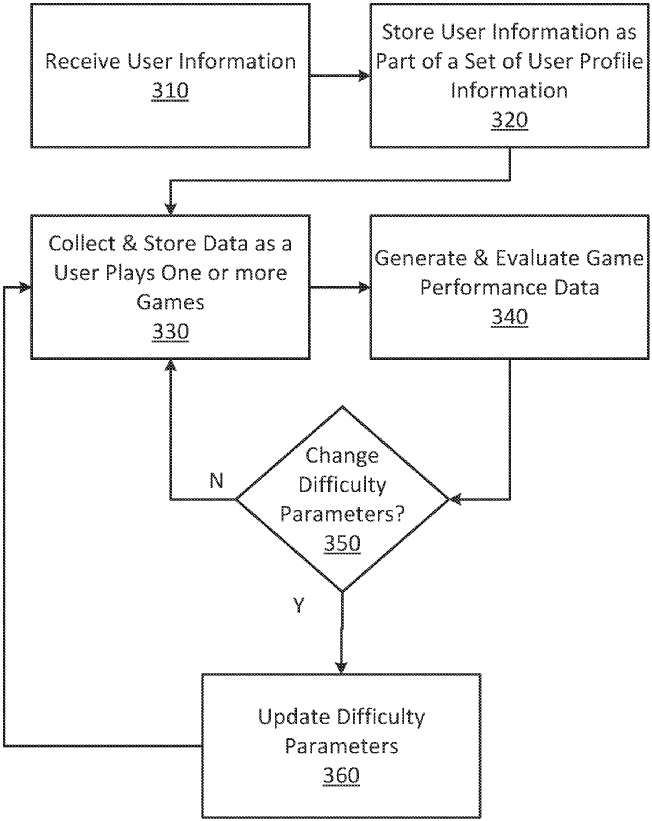

Recently, Sony has filed a new patent titled “Adaptive Difficulty Calibration For Skills-Based Activities In Virtual Environments.” Essentially, this means that the difficulty level can change as users are playing. The way that the technology will work is that it goes through and receive user information, stores the information as part of a set user profile, collect and store data as a user plays, generate and evaluate game performance data, decide whether or not to change difficulty parameters, and then adjust the difficulty accordingly. This process will repeat over the course of the game.


“Methods of the present disclosure may collect data when a user plays one or more different types of games when determinations are made as to whether the difficulty of a game should be changed,” as explained in the patent’s abstract. “The collected data maybe evaluated to identify whether a user gaming performance level corresponds to an expected level of performance. When the user gaming performance level does not correspond to an expected level of performance, parameters that change the difficulty of the game may be changed automatically. Parameters that relate to movement speed, delay or hesitation, character strengths, numbers of competitors, or other metrics may be changed incrementally until a current user performance level corresponds to an expectation level of a particular user currently playing the game. At this time, the user expectation level may be changed, and the process may be repeated as skills of the user are developed over time.
Last year, EA was able to get granted its patent for a system that will adjust a user’s controller settings depending on the user’s skill.
As of now, PlayStation 5 allows for users to set the difficulty for games with Game Presets. Players can also lock whether or not a game is in Performance or Resolution mode, First-Person view, Third-Person view, subtitles and audio, and online multiplayer settings. While something like this has been done before, this seems like the next step.
Play games, take surveys and take advantage of special offers to help support mxdwn. Every dollar helps keep the content you love coming every single day.
